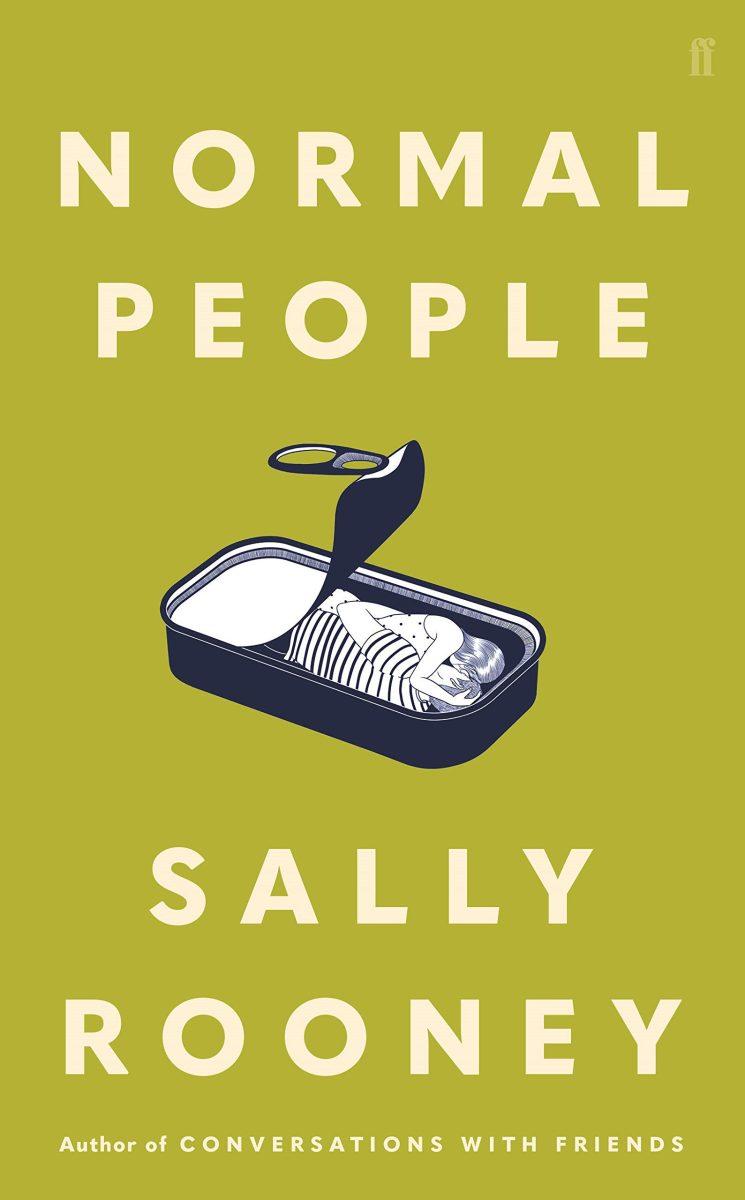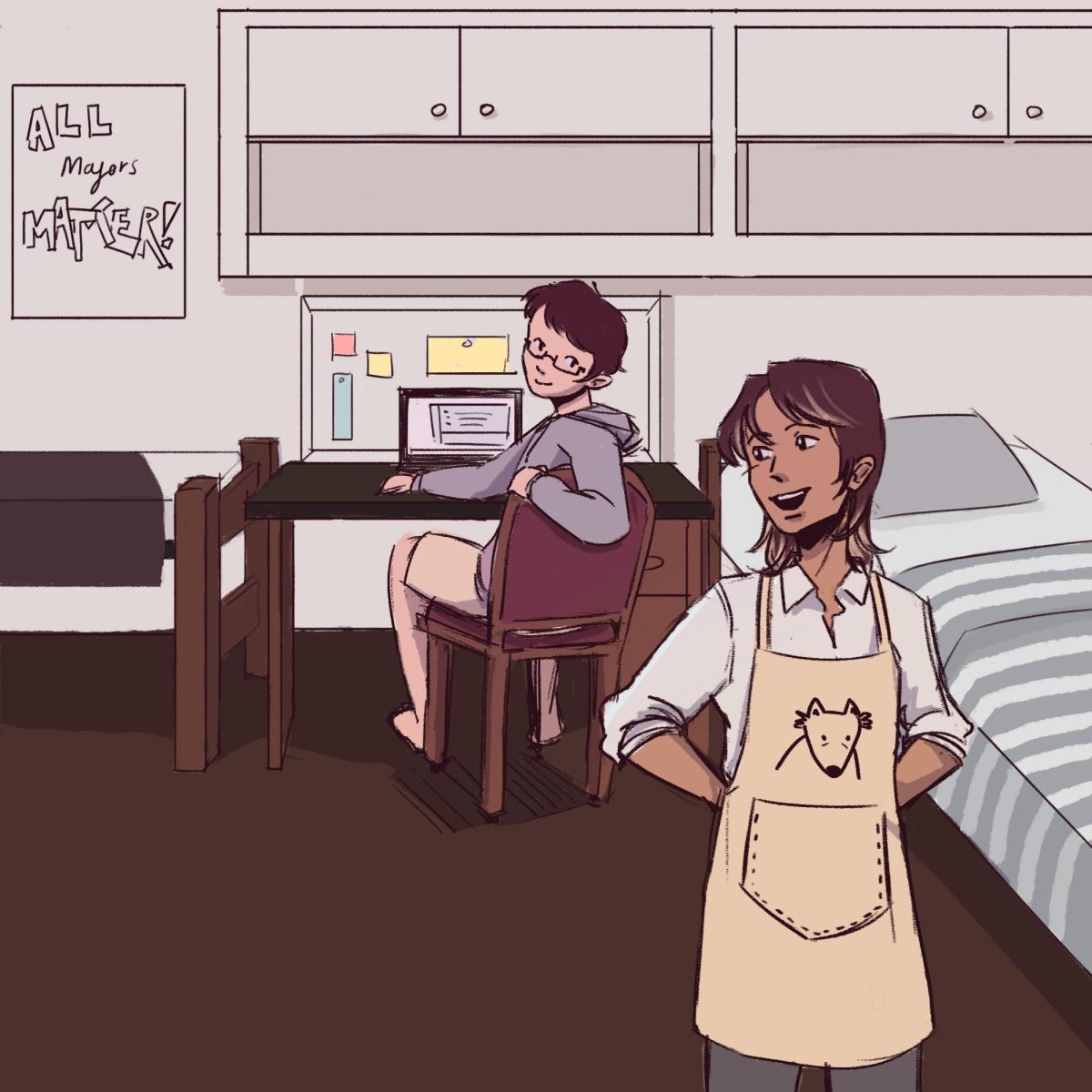Editor’s Note: This article contains mild spoilers for book “Normal People”
The novel “Normal People,” written in 2018 by Sally Rooney, quickly became a worldwide sensation following its publication, ultimately leading to a Hulu original television spinoff in 2020.
The story involves two young adults, Connell and Marianne, navigating high school and college life in Ireland. Through mutual feelings of social isolation, trauma and role confusion, they develop a strong kinship and, eventually, love for one another. However, their social pressures and internal conflicts push them apart repeatedly throughout the novel as Rooney explores how various external factors can build and damage relationships.
The book was acclaimed as a beautiful description of contemporary, melancholy right-person-wrong-time Irish romance. Rooney uses Connell and Marianne’s relationship to weave the readers through immiscible layers of class. Considering the nuanced inclusions of social commentary through peer insults and conscious self-doubt, the book has been defined primarily as a psychological, coming-of-age romance novel.
This surprises me.
It is true that Connell’s journey is one that is heavily, if not entirely, dependent on his relationship to perceived status and self-worth. However, despite the prevalence of romance and classism, I believe this book is, above all else, a feminist novel. Rather, I believe it is, what I like to unofficially call, a “non-feminist feminist” novel.
What is a non-feminist feminist novel?
Feminist writing often utilizes prose to explore the empowerment of women and share positive journeys toward gender recognition and equality. However, there exist select written works which describe the opposite. One author who adheres to the non-feminist feminist construct is Kate Chopin. In her short story, “The Story of an Hour,” Chopin discusses the emancipation protagonist Louise Mallard realizes upon hearing of her husband’s passing. When Mallard’s husband inexplicably appears at the end of the piece, she has a heart attack and dies. Mallard demonstrates that, when locked in a prison, the only weapon and the only enemy present is yourself, and Mallard would not return to her cage of domesticity.
Non-feminist feminist literature explores how women eventually suffocate beneath a glass ceiling. When reading a piece exploring feminism, readers expect to watch a flower bloom through the carefully laid permafrost of authors like Louisa May Alcott. However, reading a piece with non-feminist feminism is like ripping that flower out of its soil at the end of a harsh winter, placing it in a vase of water on your dining table, and watching it slowly wither into a dehydrated brown shell with the passing of each warm meal.
So, what about “Normal People?”
Well, in addition to Connell, there exists a second, if not more significant, protagonist: Marianne, his lover.
Over the course of the book, the reader watches Marianne lose her identity and value. At home, her brother physically assaults her under the approval of her unloving mother, who has “decided a long time ago that it is acceptable for men to use aggression toward Marianne as a way of expressing themselves.”
She leaves home with a subconscious belief in submitting to the men in her life. She pursues a masochistic relationship with a college student named Jamie, who leaves her body “feeling like a carcass, something immensely heavy and awful that she has to carry around.” She becomes a soul burdened to carry her own body, dissociating from the object of men’s desires yet still connected to her damaged physical form. Finally, she finds herself in a position of complete submission with Lukas, her partner in Sweden, who uses her for his own sexual agenda. “You see, I love you, [Lukas] says. And I know you love me.”
However, despite the damage created by her brother and lovers, Marianne’s worst abuser is Connell. In one scene, Marianne is assaulted by upperclassmen at a social event. Connell leads her away and she apologizes, believing it was her actions which led to their violation. Connell then tells Marianne he loves her, defining their relationship under his ownership.
He offers the truest sense of love she believes she can find, and, in return, she obeys. Connell knows of Marianne’s complete submission to him, and it terrifies him.
“[Marianne] comes to sit down with him and he touches her cheek,” Rooney writes. “[Connor] has a terrible sense all of a sudden that he could hit her face, very hard even, and she would just sit there and let him. The idea frightens him so badly that he pulls his chair back and stands.”
Connell disappears, only to return, as always, a few months later. His deadliest weapon is his compassion. He loves Marianne and he enjoys her submission until it frightens him. Then, rather than helping her heal, he leaves her weaker with each escape.
At the end of the book, Connell and Marianne find each other once more, and are living together until Connell reveals he will be leaving to America. The last words of the novel were Marianne’s, “You should go, she says. I’ll always be here. You know that.”
As the reader, you watch Marianne slip again and again, and you pray she finds a grasp to halt her descent, if not a path to the summit of her self-worth. However, by the end of the book, you realize Sally Rooney does not want you to reflect on Marianne’s weakness, but rather on the steepness of the slope she must exist on. Only then, do you realize that she is on the edge of a cliff.
In our society today, where progress toward equality feels unsteady and female voices are muffled with the fall of a mallet, we need to reflect on books like “Normal People.” This book reminds us that women are still fighting and losing an invisible battle against the external perceptions of their own identities. In absence of commentary like “Normal People” many believe the glass ceiling has disappeared by forgetting its opacity.
We need more non-feminist feminist writers like Sally Rooney.
Maya Pimentel is an EnMed medical student and opinion writer for The Battalion.
Criticism: Sally Rooney and ‘non-feminist’ feminist literature
July 24, 2022
0
Donate to The Battalion
$970
$3500
Contributed
Our Goal
Your donation will support the student journalists of Texas A&M University - College Station. Your contribution will allow us to purchase equipment and cover our annual website hosting costs, in addition to paying freelance staffers for their work, travel costs for coverage and more!
More to Discover















